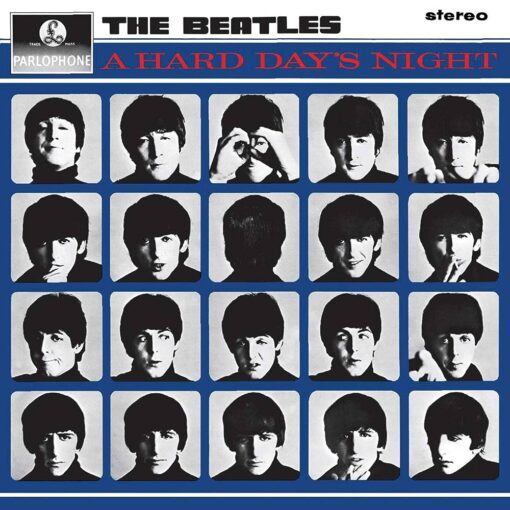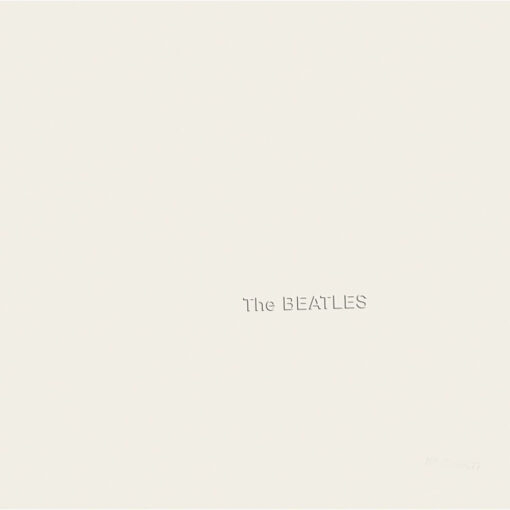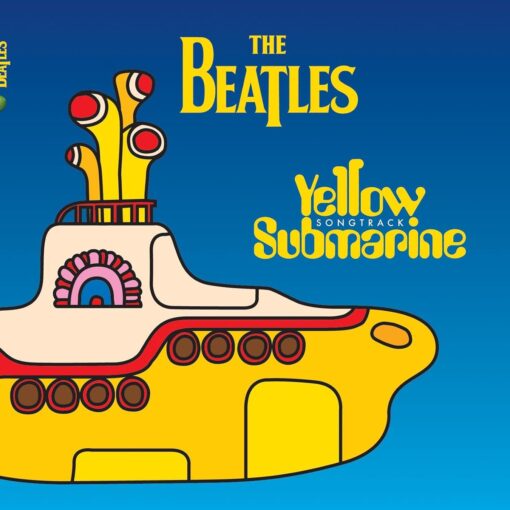- Published on 1970
- Author: Lennon/McCartney
- Track 9 on “Let It Be“
JOHN 1980: “That was something I wrote when I was about seventeen. I lived at 9 Newcastle Road. I was born on the ninth of October– the ninth month. It’s just a number that follows me around, but numerologically, apparently I’m a number six or a three or something, but it’s all part of nine.”
PAUL circa-1994: “It was one that we always liked doing, and we rediscovered it. There were a couple of tunes that we wondered why we never put out– either George Martin didn’t like them enough to, or he favored others. It’s not a great song but it’s a great favorite of mine because it has great memories for me of John and I trying to write a bluesy freight-train song. There were alot of those songs at the time, like ‘Midnight Special,’ ‘Freight Train,’ ‘Rock Island Line,’ so this was the ‘One After 909.’ She didn’t get the 909, she got the one after it!”
About “One After 909”
“One After 909,” sometimes titled “The One After 909” in early recordings, is a rock and roll classic. This timeless track found its place on 1970 album Let It Be, with primary composition credits going to John Lennon, with input from Paul McCartney, as part of their prolific songwriting partnership. The version featured on the album was a live performance from their iconic rooftop concert held on January 30, 1969, and this memorable moment was also captured in the film “Let It Be.”
Interestingly, this song’s roots date back to as early as 1957 or no later than spring 1960, making it one of the inaugural creations of the Lennon-McCartney collaboration. “One After 909” exudes a distinct flavor of early American rock ‘n’ roll, distinguishing it from the other selections performed on the rooftop that day. As a playful nod to the atmosphere, John Lennon even adds a unique twist by singing a variant of the opening line from “Danny Boy” after the song concludes.
Originating from Lennon’s personal history, he shared in a 1980 Playboy interview, “That was something I wrote when I was about seventeen. I lived at 9 Newcastle Road. I was born on the ninth of October, the ninth month. It’s just a number that follows me around, but, numerologically, apparently I’m a number six or a three or something, but it’s all part of nine.”
Paul McCartney reflected on the song, stating, “It’s not a great song but it’s a great favourite of mine because it has great memories for me of John and I trying to write a bluesy freight-train song. There were a lot of those songs at the time, like ‘Midnight Special’, ‘Freight Train’, ‘Rock Island Line’, so this was the ‘One After 909’; she didn’t get the 9:09, she got the one after it.”
The song’s journey to its final form was marked by different versions and recordings. The first version emerged in 1960 under the moniker of The Quarrymen. On March 5, 1963, the Beatles attempted a rendition during a recording session that also produced their third single, “From Me to You.” However, dissatisfaction with the outcome led to its shelving. Various takes from this session eventually surfaced on the Anthology 1 compilation in 1995. After six years, the Beatles revisited and re-recorded “One After 909” as part of their Get Back project, culminating in its eventual release on “Let It Be.”
Notably, “One After 909” also found a place in the 2003 release Let It Be… Naked, featuring a remixed and remastered version of the 1969 rooftop concert take. Additionally, the original third take of the song was released in the 2021 reissue of “Let It Be.”
Meaning of “One After 909”
“One After 909” is a song with a straightforward narrative. It tells the story of a person who misses a train, specifically the 9:09, and is left waiting for the next one, which is “one after 909.” The lyrics convey a sense of anticipation, impatience, and longing as the protagonist anxiously waits for the train to arrive.
While the song’s lyrics are relatively simple and do not appear to contain deeper symbolic meanings, some fans and critics have speculated about potential underlying themes. Some interpretations suggest that the song may metaphorically represent longing, missed opportunities, or the passage of time. However, it’s important to note that any such interpretations are subjective and not explicitly confirmed by the songwriters, John Lennon and Paul McCartney.
John Lennon, one of the song’s composers, mentioned in an interview that the number nine held personal significance for him. He lived at 9 Newcastle Road, and he was born on the ninth of October. However, he also acknowledged that this attachment to the number was more of a personal quirk and not necessarily reflective of any specific meaning in the song.
Ultimately, “One After 909” is best appreciated for its catchy melody, lively rock and roll style, and its place in the Beatles’ early repertoire. It’s a song that showcases the band’s roots in rock and roll music and their ability to create memorable, enjoyable tunes.
Personnel
The Beatles
- John Lennon – vocals, rhythm guitar
- Paul McCartney – backing vocals, bass guitar
- George Harrison – lead guitar
- Ringo Starr – drums
Additional musician
- Billy Preston – electric piano



